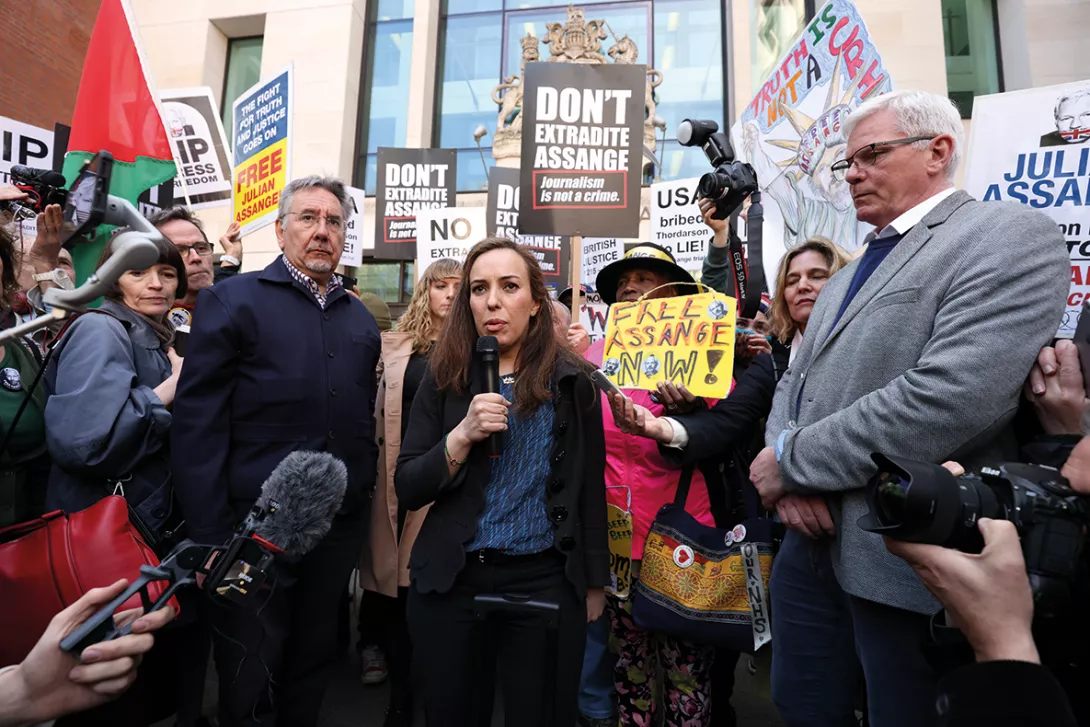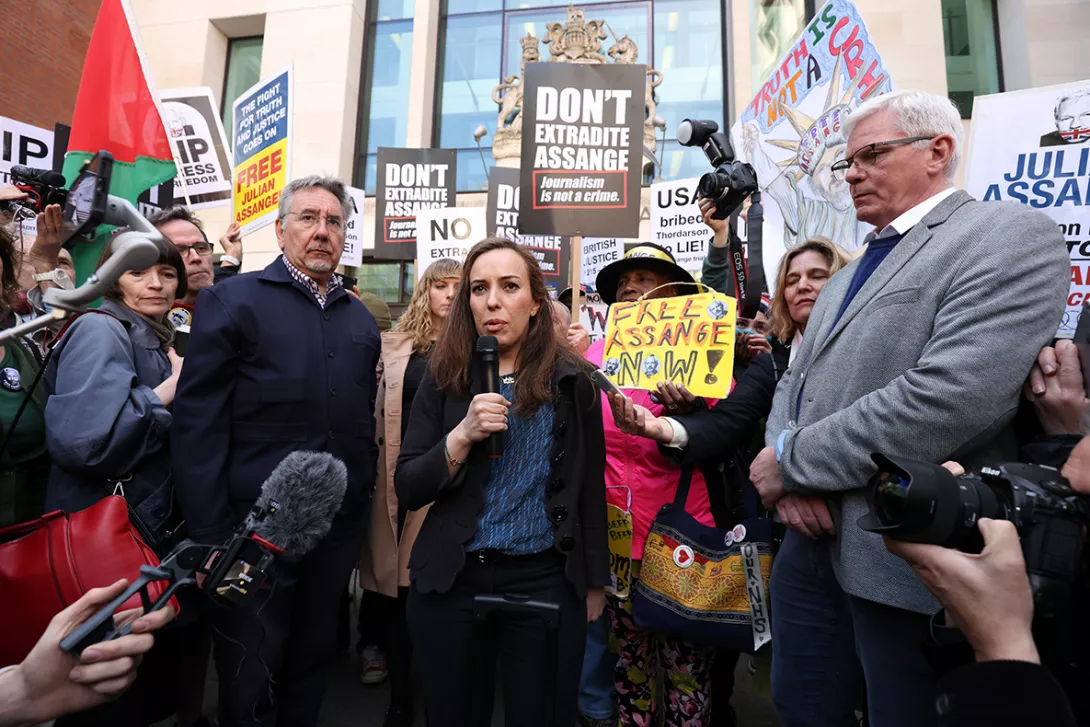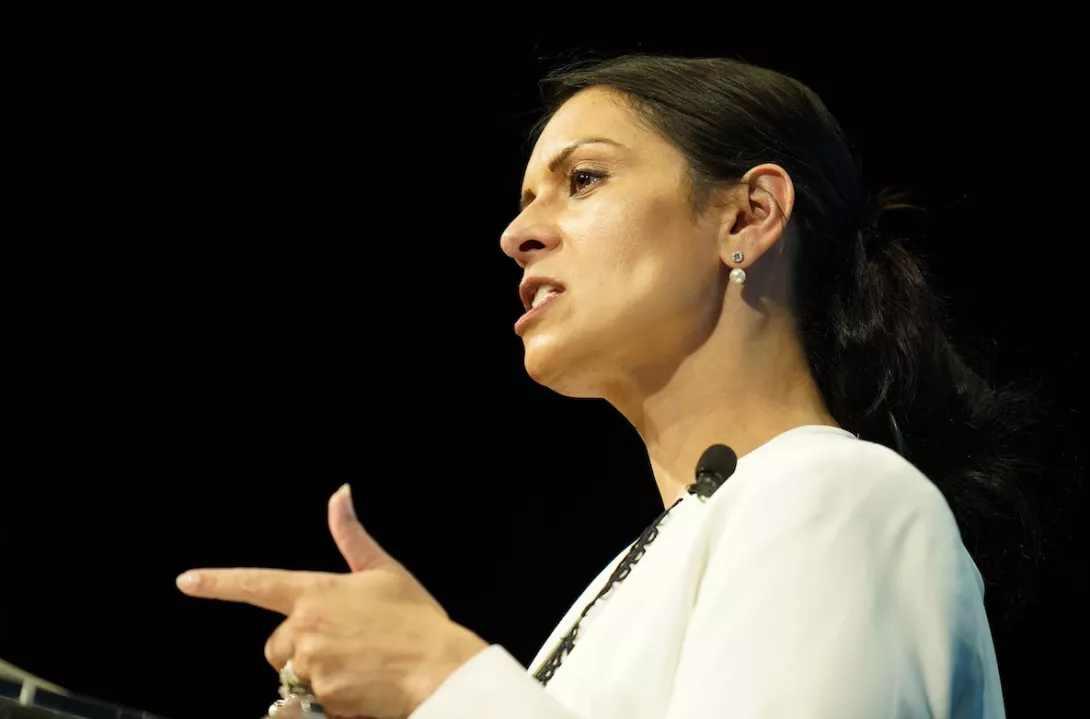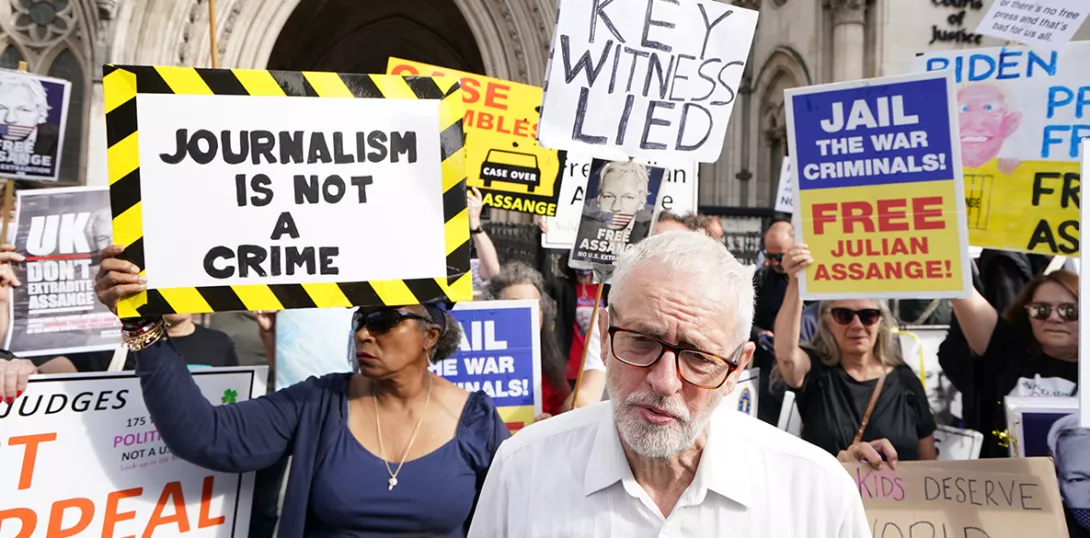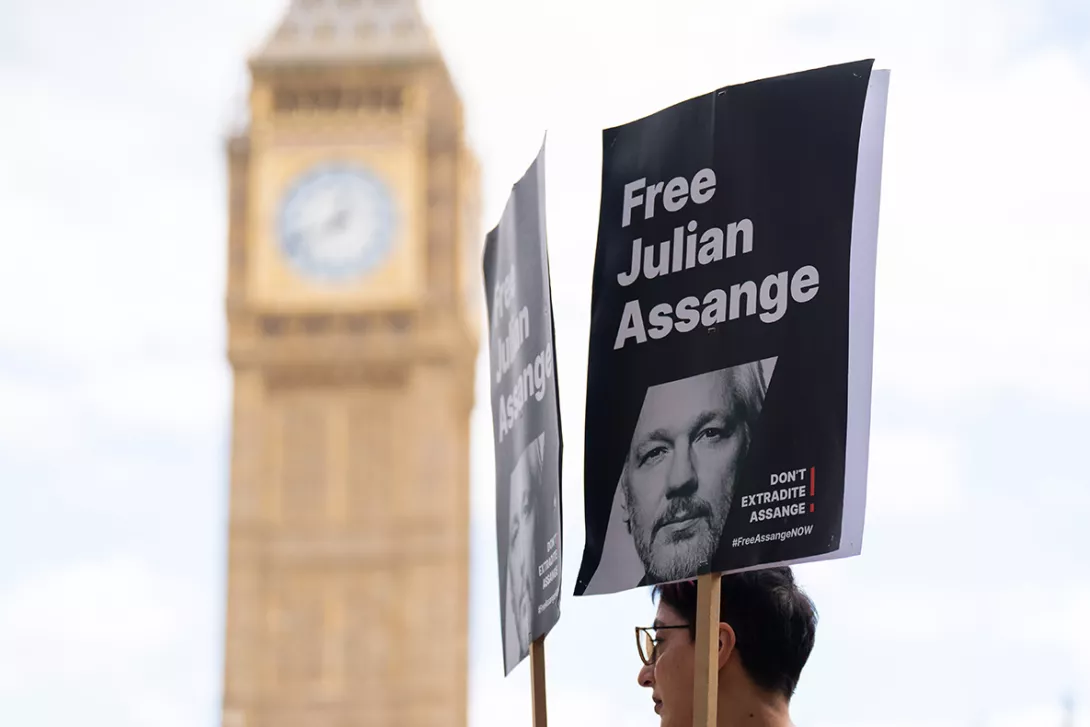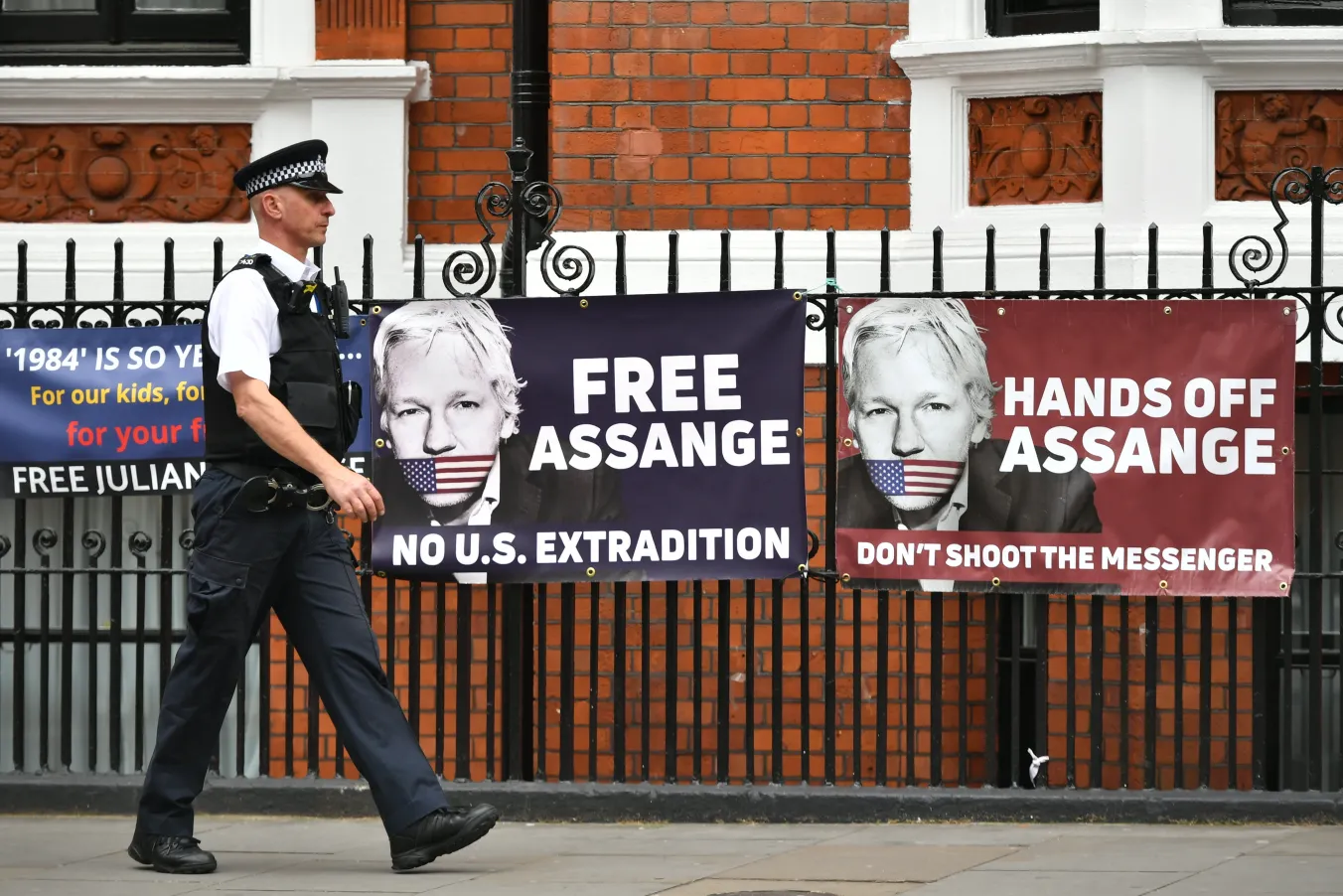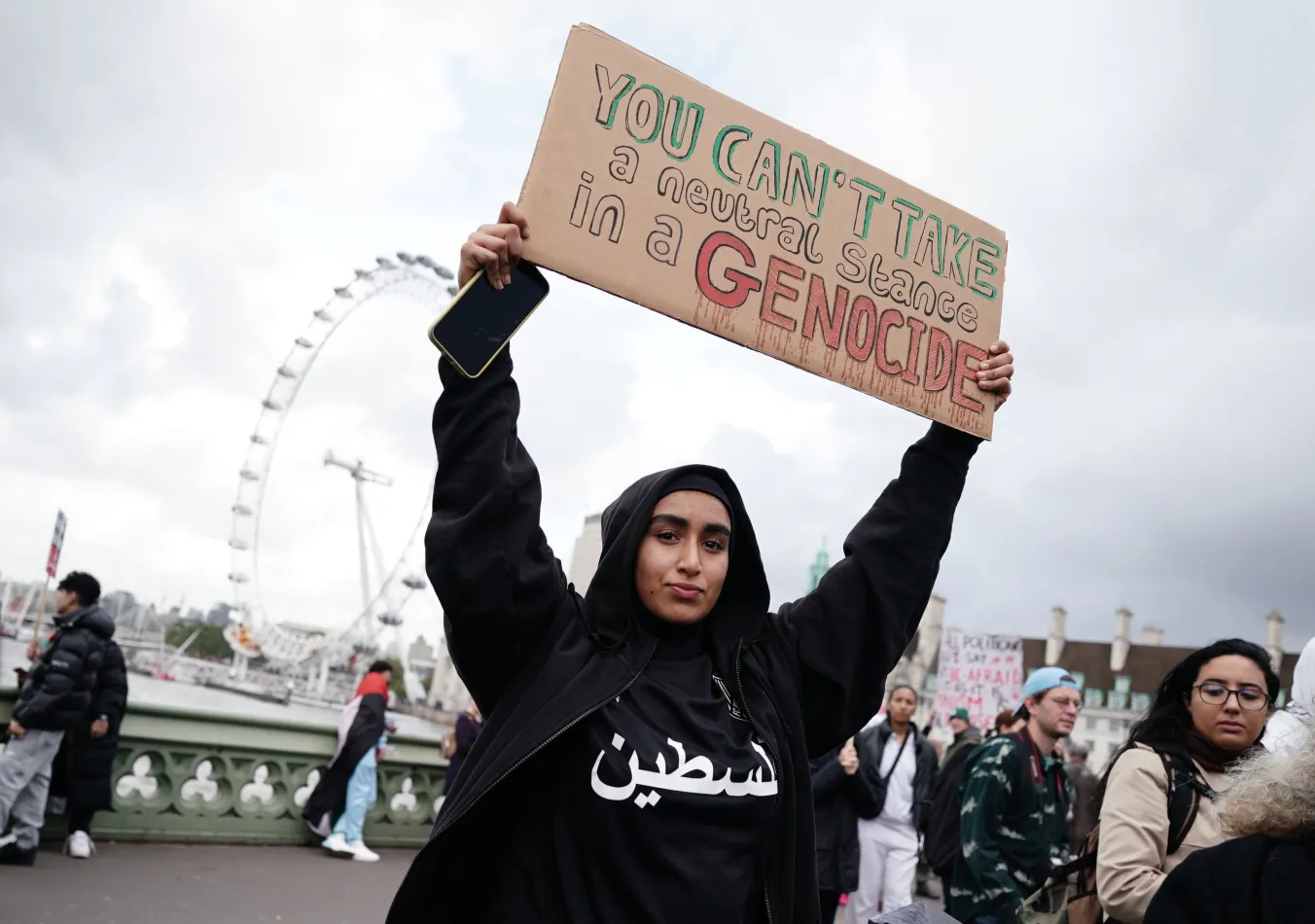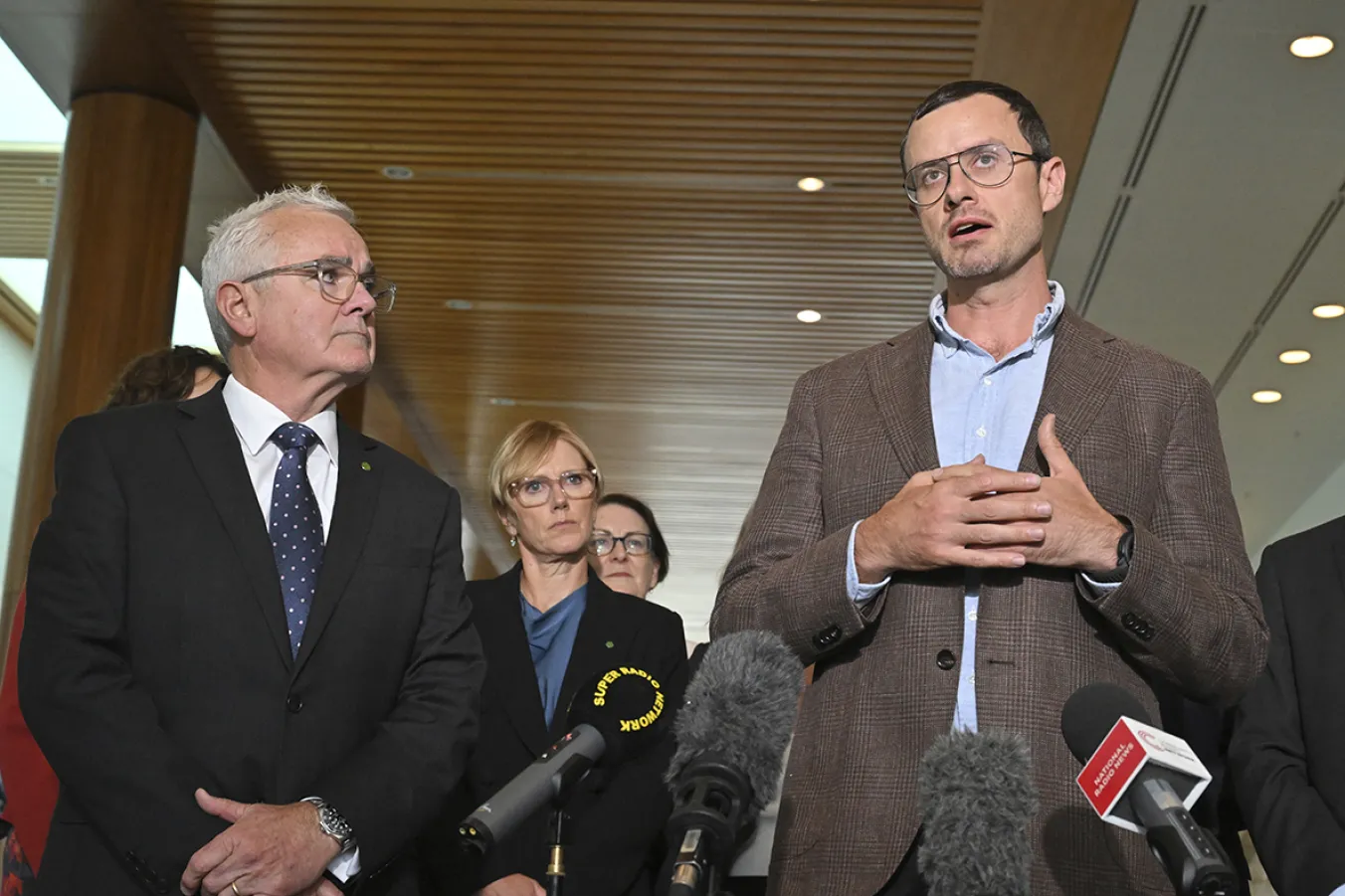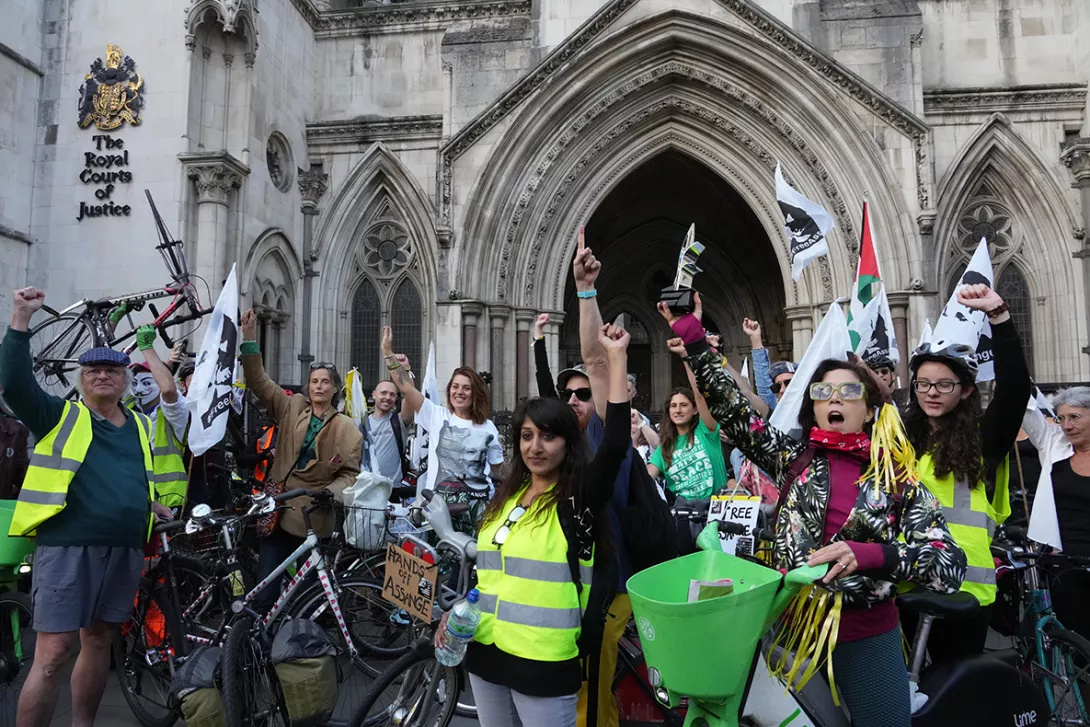
JULIAN ASSANGE’S very last chance to escape extradition to the US will happen next week in the Royal Courts of Justice.
There could not be more at stake in a single court case than there is in the Assange case. The right of journalists to report the facts that governments and corporations don’t wish to have revealed will be virtually criminalised if the extradition of Assange is successful.
The continued persecution of Assange, who has just spent his fifth Christmas in Belmarsh prison, is part of a wider attack on civil liberties by the Tories.
The government is implementing greater powers for the police to curb political protest, a raft of anti-union legislation which will make it virtually impossible to organise a legal and effective strike, a new official secrets Act, and new limitations on freedom of speech.
Success for the Tories in extraditing Assange will embolden them in every other attack they are making on civil liberties and trade union rights.
That’s why it’s in the interest of every trade unionist, everyone who cares about preserving civil liberties, to join the protests outside the Royal Courts next Tuesday and Wednesday.
The National Union of Journalists, and the International Federation of Journalists, which represents 300,000 members worldwide, are supporting the protests. So is Amnesty International.
They have been joined by film directors Ken Loach and Oliver Stone, musicians Brian Eno, Lowkey and Roger Waters, MPs Jeremy Corbyn and Richard Burgon, and the president of the Muslim Association of Britain, Raghad al-Tikriti.
There is now a growing consensus that the Assange extradition is a wholly unjustified assault on freedom of the press. Moreover, the revelations during the extradition hearings themselves have raised the gravest doubts about the legality of the process itself.
In the course of the court hearings it has become public knowledge that a lead witness for the prosecution lied, that Assange and his lawyers were spied on by the CIA, and that the CIA discussed at the highest levels plans to abduct or assassinate Assange.
In any normal trial any one of these, let alone all of them, would have had the case dismissed.
That has not happened in the Assange case because there is too much at stake in the “special relationship” between the US and British governments. It is this above all else that marks the Assange case out as a political trial.
In a political trial it is crucial that political pressure outside the courtroom is brought to bear to halt the abuse of the legal system that takes place in the courtroom.
That’s why protest at the court is so important.
Rally for Julian Assange outside the Royal Courts of Justice, WC2A 2LL, from 8.30am on Tuesday and Wednesday February 20-21.
